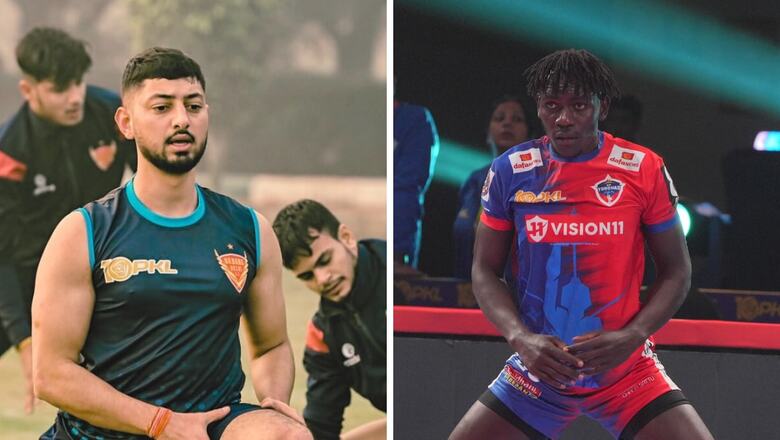
views
The game of kabaddi was played in the Indian sub-continent even before records can be found even to date such matters. India, understandably are the best at the sport across the world with Iran have come close to challenging in recent memory.
Then came the Pro Kabaddi League (PKL) in 2014, with a franchise-based model of competition, the popularity exploded not only in India but across the globe. With that came professionalism, financial promise and future growth potential.
In short, PKL itself became the centre of sorts for kabaddi as a sport.
Over the years many foreign players have graced the PKL mat, with nationals from Bangladesh, Sri Lanka, Nepal, Iran, Japan, the UK, Indonesia, South Korea, Oman, Taiwan, Kenya, Turkmenistan and even Pakistan took part in the auction.
South Korea’s Tae Deok Eom was the highest paid overseas player in the inaugural season and his teammate at Patna Pirates was Pakistan’s Waseem Sajjad.
In 2023, the tenth season of the Pro Kabaddi League, players from nine different nations are competing. Iran, understandably, has the most representation. There are three Kenyans, two English and Taiwanese each and rounded up by nationals from Sri Lanka, Bangladesh, Nepal, Poland and Iraq.
Representing The World
One of the Englishmen in the league is Dabang Delhi’s Yuvraj Pandeya, who took up the sport late into his teens during his time with the Hindu Swayamsevak Sangh.
“I was part of this organisation in the UK which is the HSS, which is the Hindu Swayamsevak Sangh. I’ve been there since I was a child and because it’s kind of a Hindu organisation, it’s got Indian roots and we play Indian sports, along with other sports as well. Kabaddi was one of them, Kho Kho being another. That’s our kind I started playing,” Yuvraj told News18.com during an interaction.
“Because of this HSS we played all sorts of sports, we played Kabaddi and Kho Kho, and everything else. I kind of got into where I am now. This kind of tournaments that happen every year, and you’re gonna have all the shakhas in the UK. So shaka just basically means a branch of HSS.
“Every year, and all the shakhas in the UK basically get together and then they have annual sports competition, in which a few other sports like Kabaddi, Kho Kho and then there is football for the junior kids as well. So then that year, I played Kabaddi for my shakha.We played in the tournament played pretty well, I think got to the semis that year. At the tournament, the captain of England side at that time was also there. And he basically told me, and he said, ‘you play pretty well. Do you want to kind of come to England training, and then train with us’,” Yuvraj added.
Another player in this season’s roster is Kenya’s Samuel Wafula, who has had a similar yet distinct journey to the mat.
Wanting to play professional football, as a goalkeeper, from childhood, kabaddi presented itself as a more lucrative outlet for the teenager.
“From a population of 40 million people, we will find like 20 million of them play football. My dream was always to play. So I sat myself down, thought about the chances of playing football in our country is so minimal.” Samuel recollected.
It was Zachariah Ndung’u, who was disgruntled by the widespread corruption in football, who took it upon himself to bring a new sport to his nation. When he stumbled upon Kabaddi, he knew he had struck gold.
In November 2017, he set out on an expedition across the hinterlands of Kenya to unearth footballers, who like him were losing hope in their dream. He found Samuel.
“I remember it was 2018, after I finished high school. In Kenya after high school, we have like one month then the high school results come. When one of the national team players Daniel (Omondi Odhiabod) came to rural area. So Zachary and he were looking for people who can volunteer to play the game,” said Samuel.
Learning From the Best
Cut to 2023, both Yuvraj and Samuel are in Pro Kabaddi.
The level of competition, they agree, is nothing like they have ever faced before.
“Obviously the level in India is completely different. It’s a different level. What it is in England I mean even when I played when I first played in that tournament, the rules were different as there was no lobby then, nor was there any bonus line. We played with literally just the check line. You kind of go in with a ‘D’ formation, as opposed to cover on the corner. Then it was just kind of played for fun kind of thing then. The level is different in India. There is played it more as a hobby. It’s not as well recognised as it is. Some of the professionals that are in the England team at the minute are like doctors, dentist. I’m an accountant myself. So it’s kind of just played as a hobby. So yeah, the levels are completely different,” said Yuvraj.
He added that in India, the professional structure is there, not like back home.
As for, Samuel, he started his Kabaddi journey much like players in India. Playing on mud and that too without protection or safety.
“We did not have mats when I started out. Only the national team had one. So we played on dirt ground, in the mud. In India, even if kids don’t have mats, they know the safety measures. Back in Keya, we just found a hard surface, with hard stones all over. I was a little bit more difficult compared to players in India,” Samuel said.
With that, he helped his country to a bronze medal finish at the 2019 Kabaddi World Cup in Iran.
“That is one of the major reasons for coming to India, to learn. Back home in Kenya, we don’t have a professional coach who teaches Kabaddi. We rely on the YouTube vidoes of Pro Kabaddi. You can see the ‘Dubki’ of Pardeep Narwal but in India I can see the player and learn from him first-hand,” Samuel said.
Yuvraj too said, learning the nuances and skills of the game first-hand is something that can’t be replicated.
“Coming into PKL, I guess allows us to learn a lot more skills from basically the best players in the world. And I guess take that back to England and teach everyone else that plays and hopefully grow the level of kabaddi in the UK,” Yuvraj said.
“It also gives an incentive I guess, to all the people that are coming into the sport and may be new people that may potentially come into sport, that there is an incentive if you play well enough, then you can get into one of the best leagues in the world,” he added.
Acting like coaches already, both players are hoping that knowledge acquired from India can help their country become better quicker.
“We’ve watched PKL, but obviously it isn’t accessible to watch in the UK, kind of the live streams and stuff. So we used to learn from watching highlight on YouTube and watching other channels. And that’s how we learn because there’s not really a coach or anything in the UK,” Yuvraj said.
For Samuel, his coaching has taken him beyond national boundaries too.
“Kenya was the first to learn Kabaddi from India. Now we have several countries playing like – Tanzania, Uganda, Burundi and Zambia. This is all because of Kenya Kabaddi. I have been to Uganda and taught Kabaddi to the Ugandan team. We have taught Kabaddi to the Tanzanian team. Kenya is doing its best to take Kabaddi all over the continent,” he said.
Going for Gold
Samuel as well as Yuvraj hope that with the steady growth in the popularity of Kabaddi, the day will not be far when Kenya and England challenge India for the World Cup.
Yuvraj hopes getting more players in the league and helping them learn more will only benefit everyone involved in the sport.
“This is probably one of the main things I would have said obviously getting English players and getting other international players into the league. Although there might be a bit of a difference in skill level, I think just allowing players to come in and kind of learn and also playing alongside the best players is going to improve their ability. Then, if we improve, we learn new skills and we can take that back. Whereas if that doesn’t happen then I guess we’re only going to be watching videos online and trying to improve that way,” Yuvraj added.
The PKL too prides in taking an Indian sport to the world, helping in its growth and spread in popularity.
“From its inception in 2014, Pro Kabaddi has worked diligently to ensure the participation of the best kabaddi players in the world. This objective is part of our affirmation in kabaddi as a world-class sport from India. We take pride that our league has witnessed representation from the leading kabaddi playing countries including Iran, South Korea, Kenya, Bangladesh, Poland, the UK; and that the Pro League League helps their athletes to become legends of the sport,” said Anupam Goswami, Head – Sports Leagues, Mashal Sports and League Commissioner, Pro Kabaddi League.











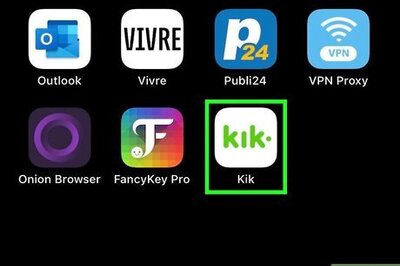

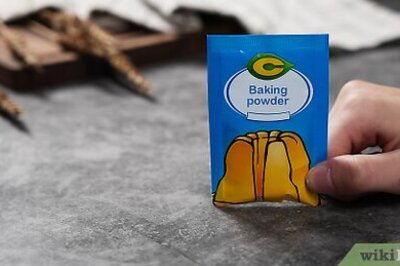
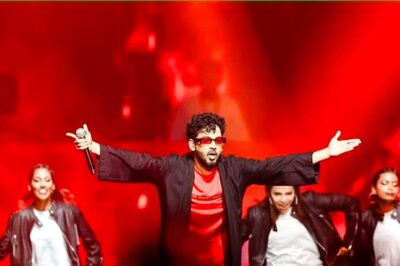



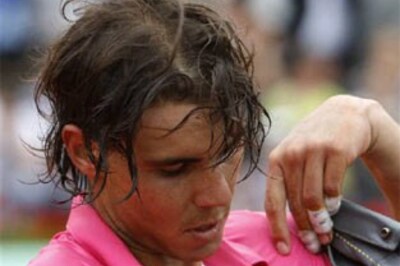
Comments
0 comment